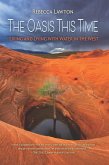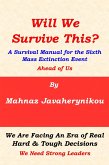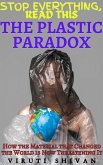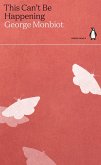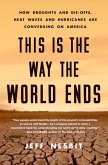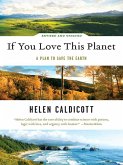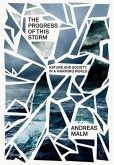Over a span of three decades, I managed campaigns for species rights and environmental organizations. We operated without the overarching context we needed to make the connections between species rights and environmentalism-as well as other issues that pulled at my heart. Environmentalists seemed unaware that there is immense suffering in ecosystem destruction. Animal rightists ignored the innate value of all species and chose sentience as the ultimate test for responding to issues. They failed to acknowledge the dependence of the sentient upon the nonsentient and their ecosystems. During and since then I have written This Is Hope: Green Vegans and The New Human Ecology" to propose that we can construct an intentional new human ecology to address a myriad of issues. It will serve as a context for the solutions Earth and all her species so desperately need from us personally but also from the organizations and institutions that act on our behalf. This is a biocentric, deep ecology proposal.
Our human ecology consists of our relationships with and between other people, other species, our institutions, and the physical environment. Because of its comprehensive consideration these relationships to all else, an examination of our human ecology can show us how multiple issues are connected-issues that advocates from diverse causes care about deeply. For the first time, advocates from many fields will see that our human ecology is the context they have been seeking to further their successes.
In This is Hope, I compare the outcomes of two human ecologies; one is tragic, the other is full of promise. I describe in depth our current human ecology to illustrate how we are living inappropriately, cruelly, and unsustainably. It is obsolete and has been for a long time. Our current human ecology is the cause of our overpopulation, our overconsumption of resources, the poverty of ecosystems and people, and our disregard for the rights of individuals from other species. I propose the new human ecology to replace it.
The new human ecology is characterized by Seven Results that we create the moment we change our personal behaviors. The Results include reduced human populations, increased possibilities for social and economic justice, and a vegan human ecology. Building on deep ecology, the topics I consider include our impacts on ecosystems; species rights as a concept that is essential to environmental advocates; fish and wildlife management and how it cannot stop the loss of biodiversity in the presence of our current human ecology; carnism; human overpopulation; the poverty found in social and economic injustice; and the environmental communities' misguided reliance on the omnivore movement. I examine Michael Pollan's Omnivore's Dilemma and popular media's distorted portrayal of veganism. I critique his misuse of biological terms, describe how he misleads readers in his accounting of philosophers associated with animal rights, and describe the flaws in his methodology that led him to dismiss vegans as misguided urbanites.
Above all, I explain why all of these issues are connected by a common thread-our human ecology. Because of the depth and breadth of the subject matter, I substantiate my work with seven hundred citations from the scientific and reliable popular literature.
Dieser Download kann aus rechtlichen Gründen nur mit Rechnungsadresse in A, B, BG, CY, CZ, D, DK, EW, E, FIN, F, GR, HR, H, IRL, I, LT, L, LR, M, NL, PL, P, R, S, SLO, SK ausgeliefert werden.



